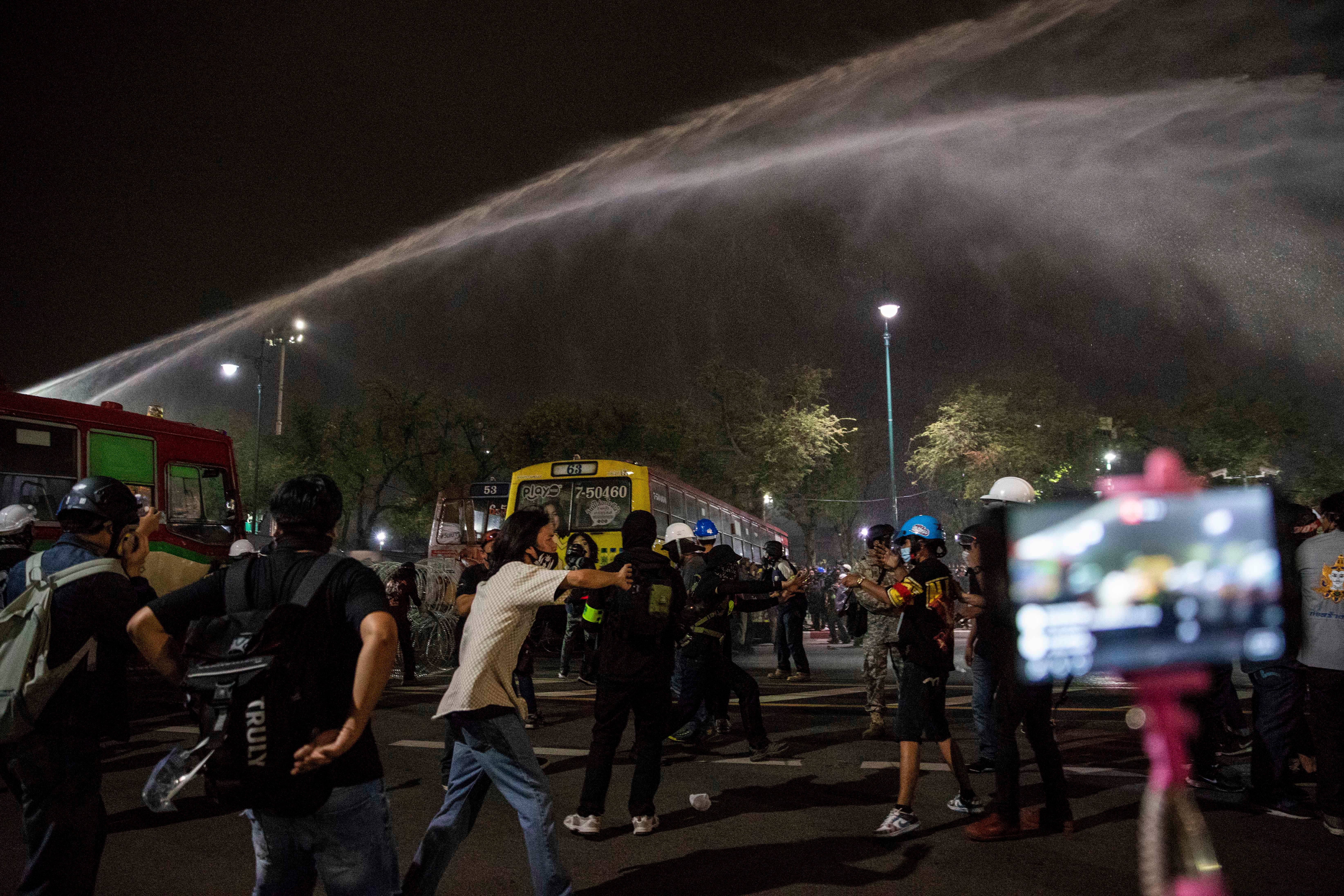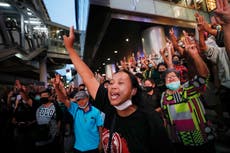Thai police use water cannons against pro-democracy protesters in Bangkok
Thailand’s prime minister has recently proposed a new measure to encourage higher public participation

Police in Thailand fired water cannons on thousands of pro-democracy protesters on Sunday as they continued to demand the ouster of the military-backed prime minister and former general Prayut Chan-o-cha and a slew of other reforms.
Demonstrators were marching towards the royal palace in Bangkok to convey their demands – which include curbs on the power of the monarchy – to King Maha Vajiralongkorn, but their route was blocked by police using buses and barbed wire.
Eye witness accounts and news images showed sprays of water hitting the crowd, but according to local media reports police insisted they did not deliberately fire on protesters, rather aiming towards the sky in a bid to get the marchers to disperse.
The protesters were carrying letters addressed to the king, seeking reforms and end of monarchy’s interference in national politics. The letters said when the king can hear flattering praise he should also listen to fearless criticisms and suggestions – a reference to Thailand’s strict lèse-majesté laws.
The anti-government protests have been continuing in Thailand for months now with activists pushing for a new constitution, the resignation of the prime minister and reforms of a monarchy which is still much-revered by older generations.
Last month, Thailand’s government had declared a state of emergency, banning large gatherings and placing controls on local media coverage of the unrest, but the student-led protesters continued to turn out in large numbers. After a week the government lifted the emergency and tried to engage the protesters in dialogue.
This latter approach has failed to make any impact so far. Protesters have added to their demands a call for the release of dozens of activists who were arrested during the emergency.
Last week, Thailand government’s spokesperson said that prime minister Prayut Chan-o-cha has signed a letter to officially propose the draft Referendum Act which is “proposed to promote genuine public participation under the democratic process for the sole benefit of the Thai people.”
“Under the draft act, the people could exercise their fundamental rights prescribed in the constitution to express their voices by way of voting, both on constitutional amendment and on the government’s decisions on major issues,” the government spokesperson had said.
Join our commenting forum
Join thought-provoking conversations, follow other Independent readers and see their replies
Comments



Bookmark popover
Removed from bookmarks